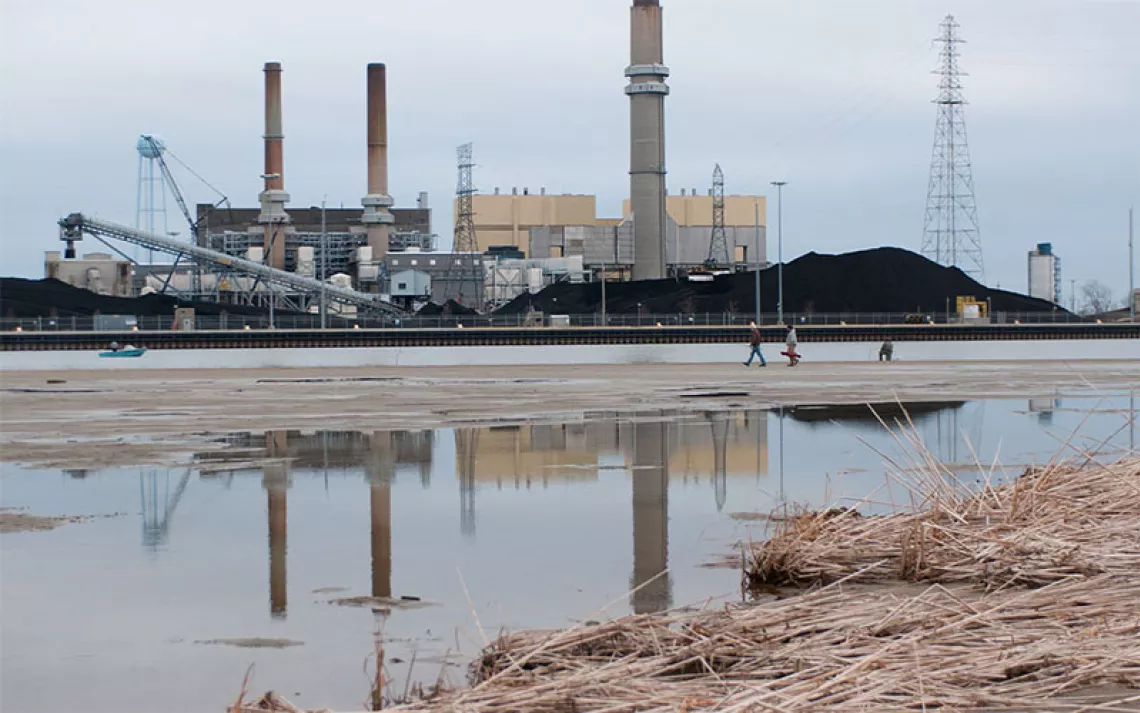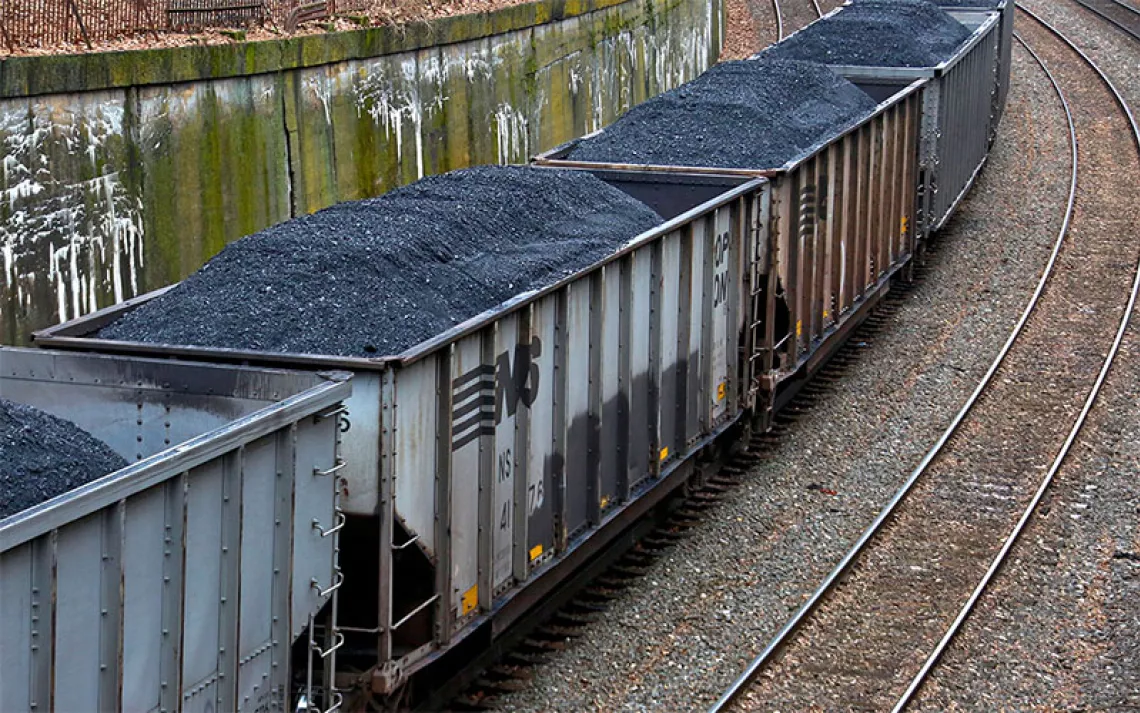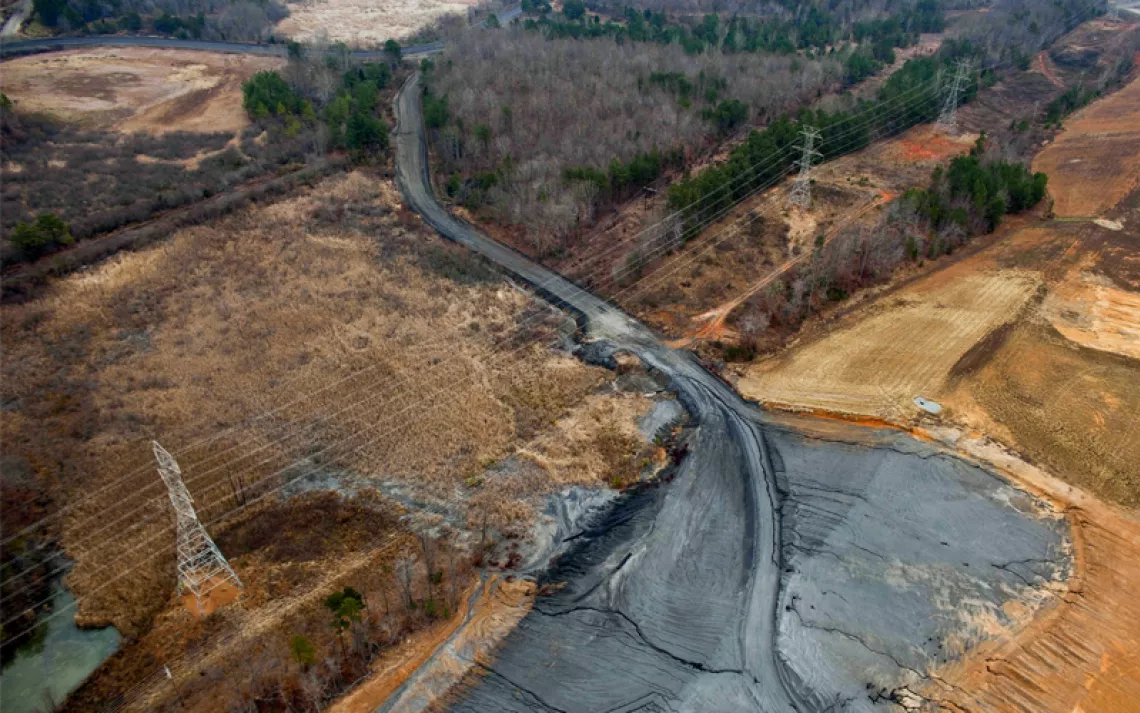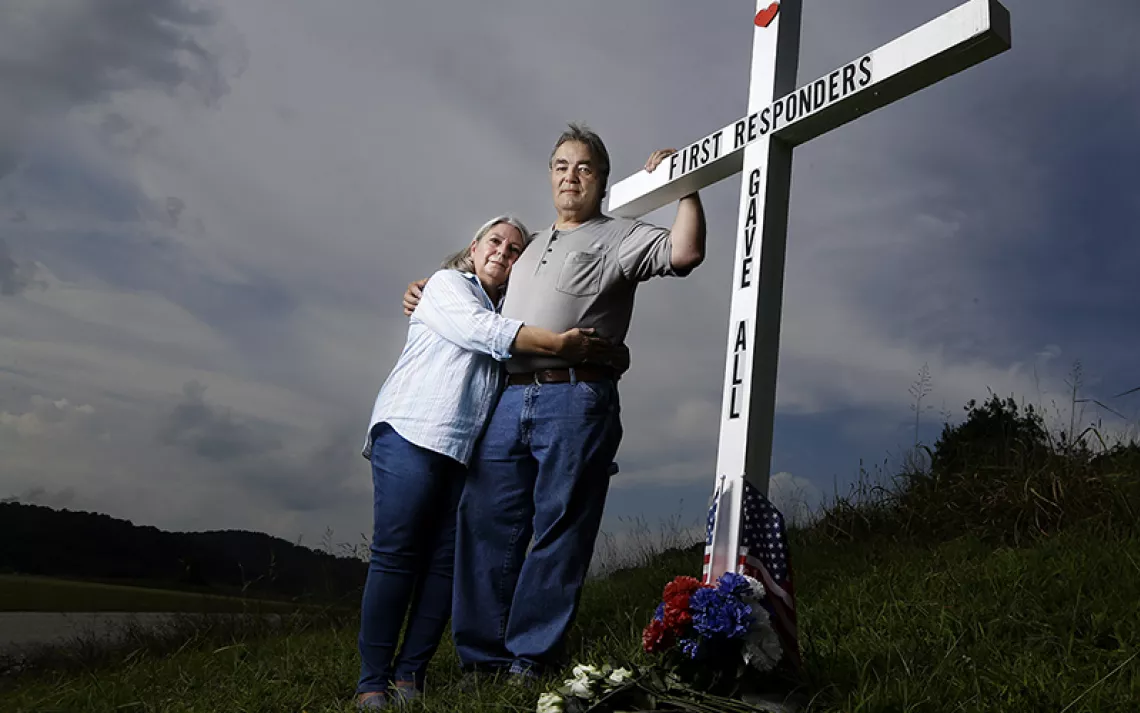Clean Coal Is Not a Joke
There’s nothing clean about coal and nothing funny about its impacts
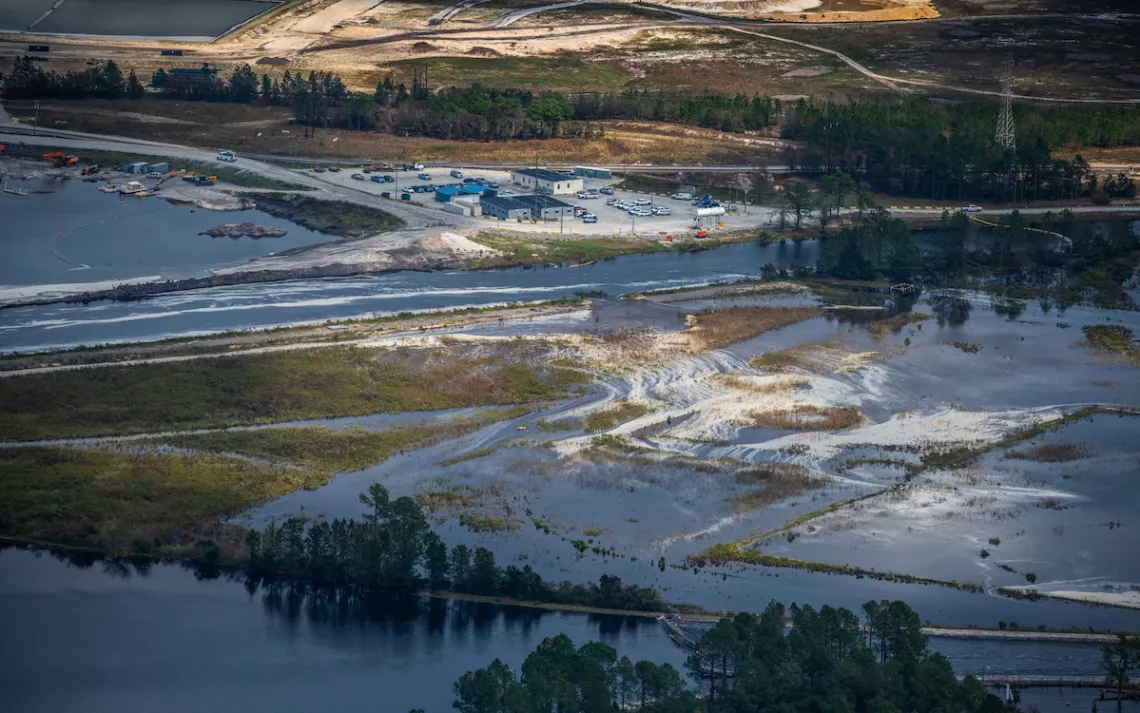
The Sutton Power Plant coal ash spill on September 21. | Photo by Jo-Anne McArthur, courtesy of the Waterkeeper Alliance
When Donald Trump rambles on about “clean coal,” he never mentions the parts of coal that aren’t very clean. He doesn't talk about coal’s toxic byproducts that are found in its ash, its dust, and its smoke. And he doesn’t talk about the potential health impacts for the people who live near mines, power plants, and shipping terminals.
Such coal-related health threats are familiar to homeowners near Charlotte, North Carolina, who went more than 1,000 days on bottled water because of suspected coal ash contamination in their tap water. The health risks are familiar to residents in Norfolk, Virginia, who have to contend with coal dust on their homes and gardens from the trains that rumble into the largest coal export terminal in the Northern Hemisphere. The dangers of coal are familiar to the Appalachian communities beset with air and water pollution from mountaintop-removal mining that carves the tops off of mountains and dumps the remnants into streams.
And coal’s threats are familiar to residents of eastern North Carolina, who last week learned that thousands of cubic yards of coal ash—the toxic waste product of burning coal—could be seeping into the Cape Fear River. Duke Energy, the largest utility in North Carolina, has admitted that floodwaters from Hurricane Florence have inundated coal ash storage pits at the L.V. Sutton power station in eastern North Carolina. Both utility and state officials don’t know how much coal ash could be making its way into the Cape Fear River, which provides drinking water for some 60,000 residents. But coal ash wouldn’t be the first industrial pollutant released into the river; the river is already contaminated with a chemical known as GenX, a potentially cancer-causing substance.
It’s easy to make jokes about clean coal. When Trump talks about it, his descriptions are so off-base that it’s unclear whether he even knows what he is talking about. Here’s what the president said at a rally in Phoenix last year: “We’ve ended the war on beautiful, clean coal, and it’s just been announced that a second, brand-new coal mine, where they’re going to take out clean coal—meaning, they’re taking out coal; they’re going to clean it—is opening in the state of Pennsylvania, the second one.”
That is, to be clear, not what “clean coal” means. When the fossil fuel industry talks about clean coal, it’s talking about coal-fired power plants that capture the carbon emissions from burning coal and stores them somewhere else, usually underground.
Yet burying the carbon emissions from coal-fired power plants doesn’t fix the fact that coal and its byproducts are inherently toxic. Perhaps it’s easy to misunderstand what “clean coal” is supposed to mean. But such confusion comes at the expense of the people—usually poor, often people of color—who are forced to suffer the consequences of coal ash and coal dust and coal mining.
Instead of making jokes about Trump’s ignorance (here’s John Oliver on Trump’s clean coal definition), we should be angry. We should be angry at the Trump administration, which in its obsequious crusade to placate coal executives and the fossil fuel industry, sells the myth of clean coal while removing regulations that protect public health and the environment. In July, for instance, the administration announced that it would be relaxing Obama-era standards on the storage and disposal of coal ash, bending to industry pressure to loosen the first-ever federal regulations on the toxic waste. Those regulations were put in place in 2015, after a series of coal ash spills throughout the Southeast sent thousands of tons of coal ash into nearby rivers and communities. Just months after Trump’s EPA announced its intention to relax federal standards for coal ash, a similar scene could be playing out in North Carolina.
We should also be angry at the fossil fuel industry, at the coal executives and utilities that place a premium on profits over public health. In North Carolina, environmentalists and public heath groups have been working for decades to force Duke Energy to clean up its coal ash pits. But instead of cleaning up its pits—many of which sit unlined, near water sources, potentially seeping toxins into nearby groundwater—Duke has tried to avoid blame, shifting the cost of cleanup for its history of coal ash spills onto its customers. And Duke is hardly the only utility to bury its head in the sand when it comes to coal ash. In March, data reported to the EPA by utilities from across the country revealed widespread groundwater contamination near coal ash disposal sites.
And we should be angry at politicians, both local and national, who are more concerned with placating the fossil fuel industry than standing up for the well-being of their constituents. In North Carolina, Republican legislators have worked for years to shield industry from regulations. In 2013, North Carolina’s Republican-controlled legislature passed a series of laws aimed at undermining environmental regulation in the state, from replacing science and public health experts on state advisory boards with industry representatives to waiving environmental permitting requirements for state-funded projects costing less than $10 million. In the wake of a 2014 coal ash spill at a Duke Energy power plant, then-governor Pat McCrory—himself a former Duke employee—disbanded the state’s coal ash commission.
Last year, the United States burned about 717 million short tons of coal for energy. From the waste created when that coal was mined to the dust created when that coal was transported to the pollution created when that coal was burned, no part of coal’s lifecycle is clean. Donald Trump has never been forced to drink bottled water because of coal-ash-contaminated groundwater. He has never had to look out of his backyard across a coal ash pond or had to close his windows to keep out coal dust.
It’s easy to laugh off Trump’s clean coal rhetoric as the ramblings of an out-of-touch politician, but those who live with the impacts of coal don’t need our jokes—they need our empathy, our anger, and our action.
 The Magazine of The Sierra Club
The Magazine of The Sierra Club
